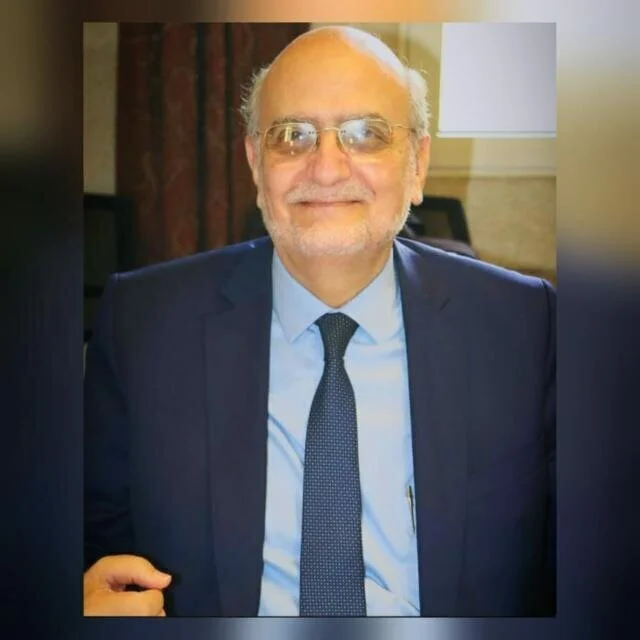The Broken Dialogue, the Lost Society, and Ecumenism
Dr. Michel E. Abs
Secretary General of the Middle East Council of Churches
Lebanon’s Ministers of Communication and Information launched the ‘Let’s Talk’ campaign today, on the occasion of the International Day of Dialogue, which falls on July 12th. The campaign aims to encourage dialogue and communication among the Lebanese. To support this initiative, the Ministry of Communication introduced free communication periods on mobile and internet networks during the month of July. According to the ministers concerned, the goal of this campaign is to promote dialogue and communication among the Lebanese.
What is remarkable about this commendable and desirable campaign is its focus on promoting dialogue between the leaders of discordant groups within the Lebanese people, who have caused destruction and the loss of the future for their youth, leading them to emigrate. The slogans presented are laughable, urging publicly antagonistic, and secretly allied, politicians to talk to each other by making their phone numbers public.
In a call with a famous news agency, the Minister of Information in the temporary government assured them that this campaign targets political figures with high popular influence, including those who are disharmonious and divergent. The minister also stressed that the campaign has no political goals but rather serves as a positive message to urge the Lebanese to engage in dialogue. The adoption of politicians’ names came because, according to the minister, the majority of the Lebanese people are ‘politicized.’ He hopes to reach an inclusive dialogue between all political forces in Lebanon by causing a positive shock at the level of communication and dialogue. He concluded by saying that dialogue at all levels is the effective solution to the problems that Lebanon suffers from.
There is no doubt that the initiative of the two ministries is good and may bear fruit in the very short term. However, the issue is much deeper and more complex and can only be solved by a long-term plan supervised by the state, the only institution that regulates the energies and resources of the people. This plan must also include legislative, educational, political, and media dimensions.
Dialogue is the only means that brings people together, raises the level of interaction between them, and leads them towards unity of spirit, goals, and cultural harmony. Dialogue opens hearts before minds between people, putting them in a state of acceptance of each other as a prelude to appreciating each other’s values and aspirations.
However, dialogue cannot only be elitist. The survival of dialogue at the elite level is more dangerous than the lack of dialogue because it will mean that people unite and get closer when elites dialogue, quarrel, and may fight when elites reject each other. This is what the Arab popular saying ‘that people are in conformity with the religion of their kings’ refers to, and it is the most dangerous characteristic of social structure.
Effective dialogue takes place between people at the grassroots level and in everyday life, whether in the field of work or any other field or activity. Common life is the actual dialogue that leads to what I call ‘mutual maturation,’ which is an advanced and deep interaction between people that makes them bearers of common aspirations and values, i.e., a common culture without leading them to become clones.
The partners in dialogue-interaction that leads to maturity, i.e., the ‘stakeholders,’ are numerous, and their responsibility in dialogue varies according to their location and human and material resources. The main partner is the state, which ensures civil peace, job opportunities, and just income distribution through a fair tax policy. It also monitors educational programs content and enacts legislation that guarantees social peace and dialogue. Parties and unions can be placed in the category of the state as they are bodies concerned with public affairs and are not classified within civil society but within the political community.
The other partner, no less important than the state, is civil society - associations operating on the ground that interact with ordinary people of all religious, ethnic, and class affiliations in rural areas as well as cities and suburbs, which often become slums in the developing world. The activities of these NGOs can strengthen people-to-people interaction, i.e., dialogue, through joint projects and achievements in which everyone is a partner.
In this context, the Middle East Council of Churches (MECC), like its constituent churches, constitutes an excellent habitat for dialogue. It has played this role since its establishment fifty years ago when it formed a framework for dialogue between churches before moving on to play a role in dialogue between Christians and non-Christians. It is a very effective institution in this field as our non-Christian partners in the homeland consider it as a interlocutor and responsible partner in public life and national destiny.
Relief work, social service and development, training and awareness programs, education programs, and dialogue programs are all means of rapprochement, dialogue, and interaction. Dialogue is not only about sitting face-to-face talking about what unites us; it is also about working together for a better shared future for our present and future generations.
The monthly Human Dignity Seminars, given their themes and the identities of their participants, demonstrate how deeply is the MECC embedded in Middle Eastern societies, with roots, extensions, followers, from various ethnic and religious affiliations.
This is our policy based on what I call ‘deep dialogue’ that brings people together at the grassroots and local levels and is the only guarantor of a better tomorrow.
Our ecumenism is not only in the relationship between Christians; it is in the relationship between all inhabitants of the world.
For this we are ecumenical!

